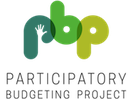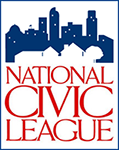NCDD is proud to be part of an international partnership of researchers and organizations that was recently awarded a $2.5 million grant that will be used to support Participedia – a democracy research project which is headed by two NCDD members – and the international coordination of research on global democratic governance innovations. Our own director Sandy Heierbacher has been advising the project, and this is great news for our field! We encourage you to learn more in the Participedia announcement below or to find the original here.
Global Research Partnership Awarded Significant Grant to Support Participedia
![]() We are in the midst of a transformation of democracy – one possibly as revolutionary as the development of the representative, party-based form of democracy that evolved out of the universal franchise. This transformation involves hundreds of thousands of new channels of citizen involvement in government, often outside the more visible politics of electoral representation, and occurring in most countries of the world.
We are in the midst of a transformation of democracy – one possibly as revolutionary as the development of the representative, party-based form of democracy that evolved out of the universal franchise. This transformation involves hundreds of thousands of new channels of citizen involvement in government, often outside the more visible politics of electoral representation, and occurring in most countries of the world.
In light of these fast-moving changes, a new global partnership has been awarded a significant grant to support the work of the Participedia Project. The Participedia Project’s primary goals are to map the developing sphere of participatory democratic innovations; explain why they are developing as they are; assess their contributions to democracy and good governance; and transfer this knowledge back into practice.
The 5-year, $2.5M Partnership Grant from the Social Sciences and Humanities Research Council of Canada (SSHRC) was awarded to the Centre for the Study of Democratic Institutions and the Department of Political Science at the University of British Columbia. The SSHRC Partnership Grant will support the collaborative work of an extensive community of academic researchers, students, practitioners of democratic innovations, design and technology professionals, and others.
The project partners include eight Canadian universities and seventeen additional universities and non-governmental organizations representing every continent on the globe. (Please see below for a list of the project partners. Full lists of the project’s collaborators and co-investigators can be found here.) More than $1M of the Partnership Grant funds will be split among project partners to support student research and travel that will further the students’ learning, while also advancing Participedia’s mission. For their part, the project partners have collectively pledged an additional $2M in cash and in-kind contributions to the initiative.
Professor Mark E. Warren, the Harold and Dorrie Merilees Chair for the Study of Democracy in UBC’s Department of Political Science, co-founded Participedia in 2009 together with Professor Archon Fung, Academic Dean and Ford Foundation Professor of Democracy and Citizenship at Harvard University’s Ash Center for Democratic Governance and Innovation. Warren serves as Participedia’s project director and as principal investigator for the SSHRC Partnership Grant.
Shared online research platforms will make it easy for both experts and non-experts to gather information. The current beta platform at www.participedia.net has already facilitated the collection of close to 1,000 entries cataloging case examples of participatory politics; the organizations that design, implement, or support the cases; and the variety of methods used to guide democratic innovations.
Warren emphasizes the project’s ambitious goals, noting that “By organizing hundreds of researchers, the Participedia Project will not only anchor and strengthen the emerging field of democratic innovations, but also develop a new model for global collaboration in the social sciences.” Expectations for the Participedia Project’s outcomes include:
- Innovative research platforms to enable extensive, decentralized, co-production of knowledge;
- A deep and voluminous common pool of knowledge about participatory democratic innovations that will support a new generation of research and practice; and
- Global and diverse communities of research and practice focused on participatory democratic innovations.
Partner organizations include the University of British Columbia, University of Alberta, Emily Carr University of Art + Design, InterPARES Trust, McGill University, McMaster University, Université de Montreal, Simon Fraser University, University of Toronto, University of Toronto-Scarborough, the Deliberative Democracy Consortium, Harvard University, the International Observatory on Participatory Democracy, Nanyang Technological University, the National Coalition for Dialogue and Deliberation, Peking University, Pennsylvania State University, Research College / University of Duisburg-Essen, Syracuse University, Tsinghua University, Universidade de Coimbra, Universidade Federal de Minas Gerais, University of Bologna, University of Canberra, University of the Western Cape, University of Westminster, and the World Bank Institute.
You can find the original version of this Participedia announcement at www.participedia.net/en/news/2015/10/01/global-research-partnership-awarded-significant-grant-support-participedia.



 There’s an alchemy when people get together face-to-face to ponder a tough issue and what to do about it. Good conversations are game changers. They help us connect with the topic, see issues in a new light, and shift how we relate to people different from us. All that impacts our willingness to work together to solve wicked problems.
There’s an alchemy when people get together face-to-face to ponder a tough issue and what to do about it. Good conversations are game changers. They help us connect with the topic, see issues in a new light, and shift how we relate to people different from us. All that impacts our willingness to work together to solve wicked problems. Connect The Dots
Connect The Dots




